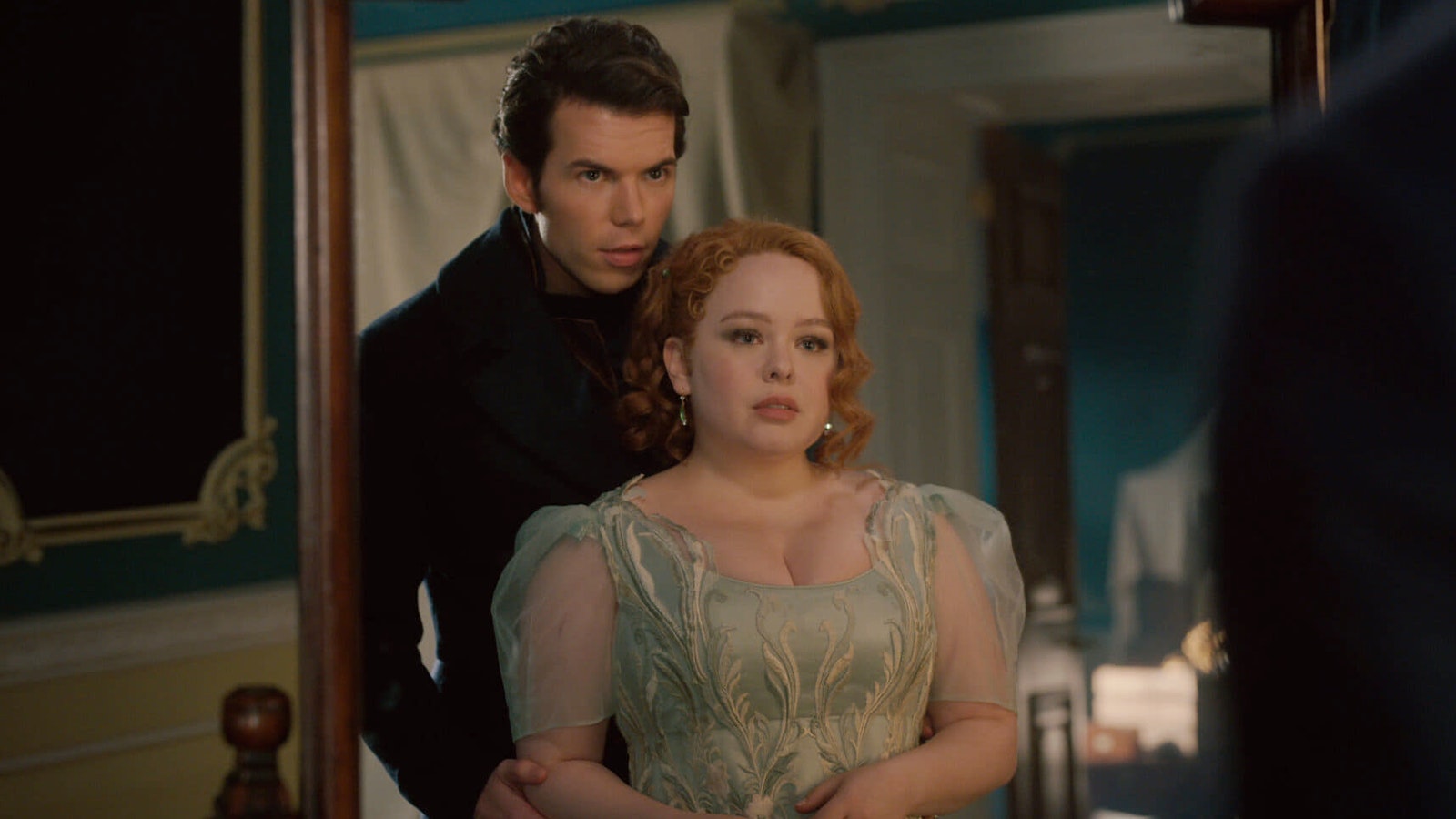In the glittering world of Regency-era romance brought to life by Netflix’s Bridgerton, few characters embody the beauty of unashamedly tender love as profoundly as Penelope Bridgerton, née Featherington. Once a wallflower overshadowed by her family’s garish ambitions, Penelope has emerged as the heart of the series’ third season, captivating audiences with her poetic yearning and fearless devotion. As the secret scribe behind Lady Whistledown and the quiet admirer turned beloved wife of Colin Bridgerton, her journey transcends the typical romance narrative, offering a blueprint for love that is both vulnerable and triumphant. With Season 3 having premiered in May and June 2024, and the series continuing to dominate streaming charts as of July 2025, Penelope’s story resonates as a modern ode to emotional bravery. This article explores why she stands as the most poetic yearner to ever yearn, redefining love with every tender glance and courageous choice.
The Evolution of a Wallflower
Penelope Featherington begins her arc in Season 1 as the overlooked youngest daughter of the Featherington clan, clad in citrus hues that mirror her family’s superficiality. Played with exquisite nuance by Nicola Coughlan, she is introduced as a figure of quiet longing, her heart set on Colin Bridgerton, the charming third son of the Bridgerton family. Her early scenes reveal a girl who yearns from the sidelines, her love for Colin a silent poem written in stolen glances and unvoiced hopes. This unrequited affection, rooted in their childhood friendship, sets the stage for a narrative that defies the era’s rigid social expectations.
The revelation in Season 1 that Penelope is Lady Whistledown—a scandalous gossip columnist who wields power through her quill—adds a layer of complexity. Her secret identity becomes a refuge, a space where she can express the wit and intelligence stifled by her family and society. Yet, it also isolates her, particularly after her decision in Season 2 to expose her best friend Eloise Bridgerton’s secret meetings to protect her from the Queen’s wrath. This act fractures their bond, deepening Penelope’s loneliness but also highlighting her willingness to sacrifice for love, even at great personal cost.
By Season 3, Penelope’s transformation is palpable. Shedding her mother’s imposed wardrobe for softer, Bridgerton-aligned tones, she steps into her own light, determined to find a husband and secure independence. This evolution is not just external; it reflects an internal shift toward self-acceptance, a critical step in her journey toward unashamed love. Her yearning, once a private ache, becomes a public declaration as she navigates her feelings for Colin, who begins to see her anew.

The Poetry of Yearning
Penelope’s love for Colin is the essence of poetic yearning—a sentiment that builds slowly, layered with longing and resilience. Unlike the fiery passions of Anthony and Kate or the whirlwind romance of Daphne and Simon, her story unfolds with a gentle intensity. Her early years of pining are marked by moments of quiet observation, such as her attentive responses to Colin’s travel letters, a detail that underscores her deep connection to him even when he remains oblivious.
This yearning reaches its peak in Season 3, where Colin, played by Luke Newton, transitions from friend to lover. The season’s pivotal scenes—particularly the carriage encounter and the mirror moment—capture the culmination of her poetic devotion. Coughlan’s portrayal of Penelope’s vulnerability, asking if she looks a mess only to be met with Colin’s tender affirmation that she is “his mess,” encapsulates a love that embraces imperfection. This exchange, widely celebrated by fans, transforms her self-doubt into a shared strength, a testament to love’s ability to heal.
The poetry extends to her role as Lady Whistledown. Her columns, though often cutting, are laced with a yearning for connection and justice, reflecting her desire to be seen and valued. When Colin discovers her secret and publicly defends her identity at a ball, it’s a poetic justice that mirrors her own writings—love and truth intertwined in a grand gesture that echoes through the ton.
Unashamedly Tender Love
What sets Penelope apart is her unashamed tenderness, a quality that defies the stoicism expected of Regency women. Her love for Colin is not a conquest but a surrender to vulnerability, a willingness to lay bare her heart despite rejection and ridicule. This tenderness is evident in her readiness to give up Whistledown—the one thing that gave her agency—to preserve her relationship with Colin, a sacrifice that underscores her prioritization of love over power.
The series amplifies this through its diverse casting and anachronistic flourishes, presenting a Regency world where racial equality exists due to Queen Charlotte’s influence. Penelope’s story, then, becomes a universal tale, her tender love transcending historical constraints to speak to modern audiences. Her body positivity, highlighted by Coughlan’s portrayal of a fuller figure as a romantic lead, challenges conventional beauty standards, making her love story a radical act of self-love that inspires viewers worldwide.
This tenderness also manifests in her reconciliation efforts with Eloise. Despite their fallout, Penelope’s longing to mend their friendship reflects a love that extends beyond romance, embracing the complexities of platonic bonds. Her bravery in facing Eloise’s anger and the ton’s judgment to reclaim her place among the Bridgertons illustrates a love that is both selfless and unapologetic.
Cultural Impact and Audience Resonance
Since Season 3’s release, Penelope has become a cultural icon, her story sparking discussions on social platforms and inspiring fan art and analyses. Posts found on X highlight her as a “mess of loyalty and longing,” celebrating her unpolished authenticity. Her journey from wallflower to beloved wife has struck a chord, particularly with viewers who see themselves in her struggles with self-worth and desire for acceptance.
Critics have praised the season, with Rotten Tomatoes awarding an 87% approval rating based on 76 reviews, noting Coughlan and Newton’s “endearing chemistry.” Variety’s Aramide Tinubu lauded the transformation of their bond from platonic to passionate, while Empire’s David Opie hailed the mirror scene as a pinnacle of the series’ romantic storytelling. This acclaim reflects Penelope’s role as a blueprint, offering a narrative where tenderness and bravery coexist.
Her story also taps into a broader cultural shift toward celebrating underrepresented voices. As a character who defies the slim, poised heroine trope, Penelope’s romance with Colin—tall, handsome, and initially oblivious—challenges patriarchal narratives, aligning with Bridgerton’s progressive reimagining of the past. This has fueled a resurgence in interest in Julia Quinn’s novels, particularly Romancing Mister Bridgerton, with fans revisiting the source material to trace her arc.
The Blueprint for Future Love Stories
Penelope Bridgerton’s legacy lies in her role as a blueprint for unashamedly tender love. Her journey teaches that yearning, when paired with courage, can rewrite one’s destiny. Unlike the dramatic declarations of other Bridgerton couples, her love is a quiet revolution—built on friendship, tested by secrets, and solidified through mutual vulnerability. This model suggests that true romance need not be loud to be profound, offering a counterpoint to the era’s transactional marriages.
As Bridgerton progresses with Seasons 4 and beyond—potentially exploring Benedict and Sophie or Francesca’s stories—Penelope’s influence will linger. Her ability to balance independence with devotion provides a template for future characters, encouraging narratives where love is an act of self-discovery rather than conformity. Her ongoing role as Lady Whistledown, despite Colin’s initial objections, further cements this, showing that love can coexist with personal ambition.
How to Experience Penelope’s Story
With Season 3 available on Netflix, viewers can dive into Penelope’s arc across all eight episodes, released in two parts on May 16 and June 13, 2024. Each episode, roughly 50-60 minutes, builds toward her romantic and personal triumph, making it ideal for a binge-watch. Pairing the viewing with Quinn’s Romancing Mister Bridgerton or exploring fan discussions online can deepen the experience, offering insights into her book-to-screen evolution.
Conclusion
Penelope Bridgerton, the most poetic yearner to ever yearn, stands as a beacon of unashamedly tender love in Bridgerton’s opulent world. From her silent pining to her bold embrace of Colin’s affection, she redefines romance as an act of bravery and authenticity. As of July 16, 2025, her story continues to captivate, a testament to the power of vulnerability in a society that demands perfection. For fans and newcomers alike, Penelope’s journey is a love letter to those who dare to yearn—and win—against all odds.




